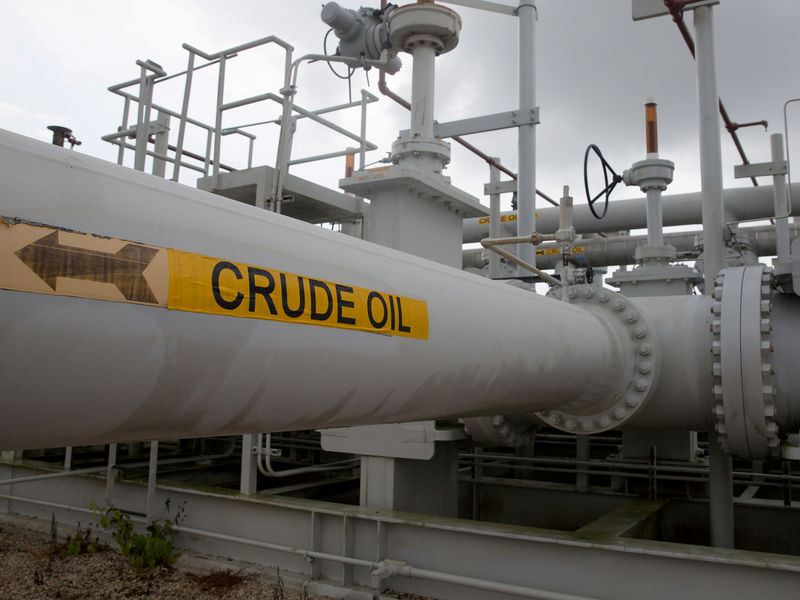By Henning Gloystein
SINGAPORE (Reuters) - Oil prices rose on Tuesday after Washington imposed sanctions on Venezuelan state-owned oil firm PDVSA a step that may curb the OPEC member's crude exports to the United States.
Despite the move, which comes as the U.S government looks to pile pressure on President Nicolas Maduro to step down, traders said ample global oil supply and an economic slowdown, especially in China, were keeping crude prices in check.
U.S. West Texas Intermediate (WTI) crude futures were at $52.29 per barrel at 0747 GMT, up 20 cents, or 0.4 percent, from their last settlement.
International Brent crude oil futures were at $60.11 per barrel, up 18 cents, or 0.3 percent.
The United States remains a major destination for Venezuelan oil despite their political differences, although volumes have declined in recent years amid Venezuela's economic crisis and as the U.S. government has started targeting the South American nation with sanctions.
The U.S. government is supporting Venezuelan opposition leader Juan Guaido, who proclaimed himself interim president last week and is demanding the resignation of Maduro.
"As a result of today's action, all property and interests in property of PDVSA subject to U.S. jurisdiction are blocked, and U.S. persons are generally prohibited from engaging in transactions with them," the U.S. Treasury said late on Monday.
"Persons operating in the oil sector of the Venezuelan economy may be subject to sanctions," it added.
Venezuela has the world's biggest proven oil reserves and is a member of the Organization of the Petroleum Exporting Countries (OPEC).
Despite its huge reserves, Venezuela's exports declined to little more than 1 million barrels per day (bpd) in 2018 from 1.6 million bpd in 2017, according to Refinitiv ship tracking data and trade sources.
(GRAPHIC: Venezuela crude oil exports - https://tmsnrt.rs/2Sfgis6)
Venezuela's declining output is occurring amid an economic crisis that has seen investment plummet, power and key equipment supplies disrupted, and salaries left unpaid.
While news of the sanctions against Venezuela grabbed headlines, analysts said the fundamental issue for global oil trade remained plentiful supply.
"The more significant issue is (global) supply, and despite OPEC's best efforts (to reduce output) there seems to be plenty of it," said Jeffrey Halley of futures brokerage OANDA in Singapore.
Global oil supply remains high largely due to a more than 2 million bpd increase in U.S. crude oil production last year, to a record 11.9 million bpd.
"The U.S. appetite for producing oil is insatiable and it shows zero sign of slowing down any time soon," said Matt Stanley, a fuel broker with Starfuels in Dubai.
There are also concerns in the oil industry that crude demand could stutter amid an economic slowdown.
Activity in China's vast manufacturing sector likely shrank for the second straight month in January, a Reuters poll showed, heightening concerns over the risks the Chinese slowdown poses to the global economy.

To stem the slowdown, China's National Development and Reform Commission (NDRC) on Tuesday unveiled a flurry of measures aimed at spurring sales of items ranging from cars and appliances to information services.